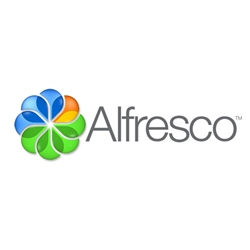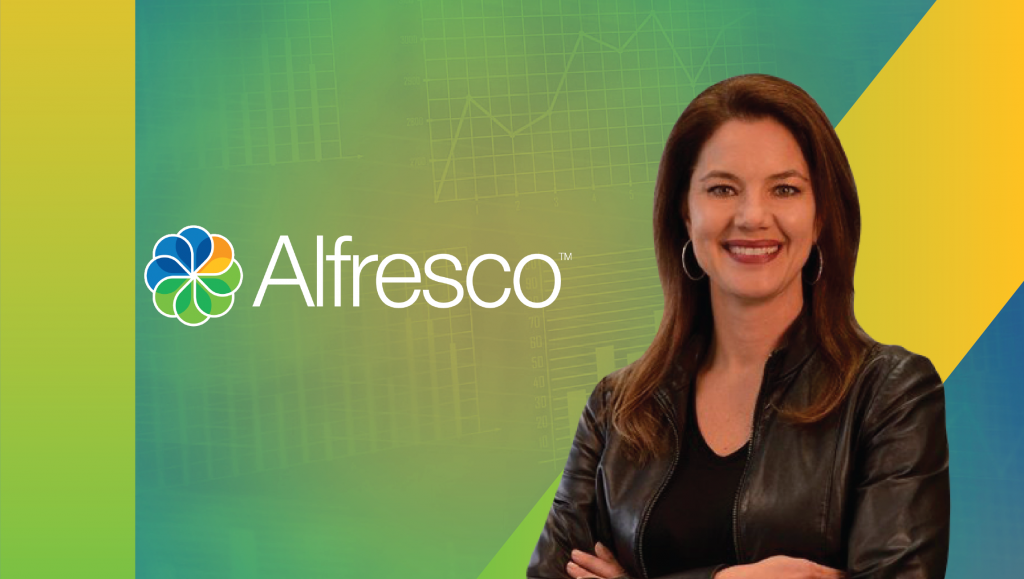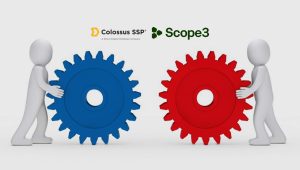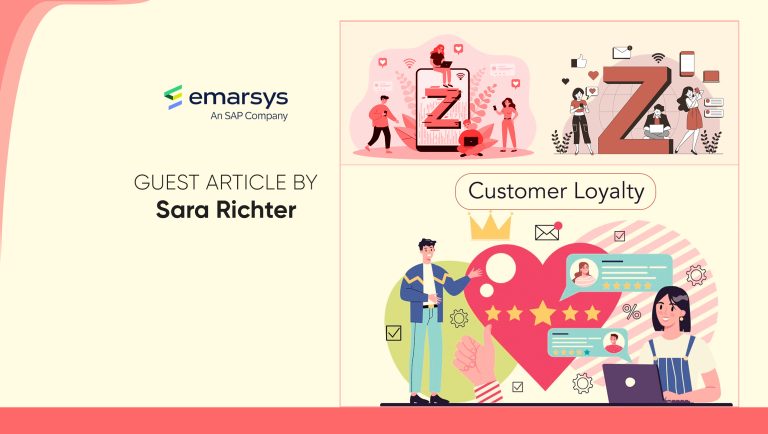


“Speed and responsiveness are the new metrics of successful companies, combined with the ability to seamlessly access information and arm people with the information that will empower them. “
On Marketing Technology
MTS: Tell us about your role and how you got here? What inspired you to be part of an enterprise content services company?
I’ve spent my entire career working for software companies that focus on building applications that foster collaboration, communication and the automation of business processes to better serve customers. I’ve been at Alfresco for three years now, and it’s been exciting to watch the enterprise content services market evolve and see the importance of content grow over time. There is a lot of value that can be extracted from information that was previously “locked away,” and now we can help people access the information they need when and where they need it, instead of spending countless hours searching for it.
MTS: As a pioneer in content services, how does Alfresco enable B2B companies to deliver truly personalized customer experience and engagement?
Alfresco has been a disruptor in the content management market and recognized as an innovator since our inception. Information has to be easy to find and integrated into the way people work, not the other way around. So that’s what we’re focused on – making it as easy as possible for people to access, consume and share information across the enterprise, as well as ensuring that development teams can create applications on top of the Alfresco platform. Speed and responsiveness are the new metrics of successful companies, combined with the ability to seamlessly access information and arm people with the information that will empower them to perform the tasks in front of them and help them determine what they need to do.
MTS: How do you bring collaboration to the core of digital business workflow?
You put people in the center. You have to apply design thinking and prototype with your users and continuously iterate. There is a great article featuring one of our customers, Capital One, which describes how they reimagined the customer onboarding process and ensured that everyone who is part of the process can participate without friction. They also removed useless steps and reduced interactions by around 70%. We talk about “digital business flow” as a way to design for the easy movement of information throughout an organization – helping people connect with structured and unstructured information seamlessly. I think it’s an inspiring concept.
MTS: What are the major challenges for companies to become truly data-enabled organizations without putting additional pressure on the existing IT infrastructure?
We are awash with data, and there’s only going to be more and more data that can be collected. Our first step to becoming more data-driven at Alfresco was to establish a data governance team to harmonize across our data sets, agree on the source of truth and prioritize what information we needed to capture to efficiently run our business. Good data leads to good decisions, so you need to focus first on data quality, then you can determine what you want to analyze. We have customers, such as FINRA, which are leveraging cloud providers like Amazon Web Services to process data sets, using computing power, they never could before. They are managing critical data at an impressive scale.
MTS: How do you see new data governance policies, brand safety regulations and anti-ad fraud campaigns impacting the world of digital media?
The General Data Protection Regulation (GDPR) is the largest directive I’m aware of in the past decade that will make organizations seriously examine their internal policies. So far, cybersecurity concerns have dominated expert discussions, but businesses cannot ignore issues that surround the right to erasure, data portability, and governance. GDPR goes beyond the mere protection of data from security risks; it focuses, equally heavily, on the appropriate use of it within organizations. As the implementation deadline of May 2018 looms closer, companies need effective Information Governance and to establish business processes to manage risk and avoid non-compliance – simply and efficiently. Someone will be the first to fail, and no one wants to be that poster child.
MTS: What startups are you watching/keen on right now?
Conversica is really interesting and, in my view, the first practical use of an artificial intelligence application within marketing. They use chatbots to engage early-stage leads or to follow up on a volume of leads all at once. It works like a “human sales assistant,” reaching out and trying to engage customers in a “conversation.” I also advise a company called Folloze. They provide new and better ways to empower salespeople to share high-quality content with prospects in an engaging way – while still keeping marketing as a key participant in the process and ultimately making account-based engagement more personalized, at scale.
Also Read: Interview with Carl Landers, CMO, Conversica
MTS: What tools does your marketing stack consist of in 2017?
I’ll focus on the top five technologies that I couldn’t live without. Marketo and Salesforce are the foundation of our stack. We use Demandbase for our account-based marketing efforts, and, since we’re an open source company, we use Drupal for our website, connected with Google Analytics. We’re currently looking at how to add a sales prospecting tool, like an Outreach or SalesLoft, for our outbound prospecting efforts.
Also Read: TechBytes with Christopher Golec, CEO, Demandbase
MTS: Would you tell us about your standout digital campaign?
Our most successful program is an insurance campaign that is in flight right now. We’re very proud to have many top insurance companies select Alfresco as their modern, cloud-native, process and content platform. So, we are targeting other property and casualty companies to share those success stories with. Our strategy is to surround, or swarm, these customers, identifying 100+ people in a target account. Our results with this approach have far outpaced successes we’ve seen in other campaigns.
I believe the success is all about the quality of the contact data, the relevance of our story, and the coordination between the marketing, SDR and sales teams. Once we launch a swarm, we can see where we have “heat.” If we’ve sent something relevant to 100 people on that account and ten people respond, we know there is interest and continue to go after it even faster.
MTS: How do you prepare for an AI-centric world as a marketing leader?
I like to be on the edge of innovation, but I’m also pragmatic. I think we need to prove the AI model a bit more to determine where it adds value. Currently, I’m in research and “wait and see” mode, listening to my peers and seeing where they notice success. It goes back to quality data, the quality of the questions, setting good hypotheses, and your ability to get good analysts to help you manage and analyze the data and then figure out how to apply it to AI scenarios. As it stands today, we’re a couple of years out from AI being a true, integrated part of the common martech stack.
This is How I Work
MTS: One word that best describes how you work.
Passionately!
MTS: What apps/software/tools can’t you live without?
My mobile phone, mostly for texting to get quick answers, but I constantly have to remind people that the phone is actually used for making calls! If you need to communicate with someone, call them and talk and get out of email. I also can’t live without Tableau for our dashboards, PowerPoint (I’m a visual communicator) and, of course, Alfresco!
MTS: What’s your smartest work-related shortcut or productivity hack?
Having strong personal relationships and trust with my peers and the people with whom I need to work on a daily basis.
MTS: What are you currently reading? (What do you read, and how do you consume information?)
“HomoDeus: A Brief History of Tomorrow,” by Yuval Noah Harari, and “Disrupted: My Misadventure in the Start-Up Bubble,” by Dan Lyons. I get most of my daily news from NPR and LinkedIn Pulse.
MTS: What’s the best advice you’ve ever received?
Your team is your peers, not the people who work for you.
MTS: Tag the one person in the industry whose answers to these questions you would love to read:
Heidi Bullock from Engagio.
MTS: Thank you Sydney! That was fun and hope to see you back on MarTech Series soon.
Accomplished marketer with decades of experience in senior leadership roles including product marketing, customer experience, demand generation and communications. Sydney brings passion, skill and a customer-centric focus to drive tangible sales results. She has a strong track record of building global teams and bringing new products to market as she is able to link business strategies through execution and customer adoption. A creative, solutions-driven and achievement oriented individual experienced in developing and executing marketing strategies to build awareness and generate demand across a variety of customer and industry segments.

At Alfresco, we believe that business is a constant flow of information and decisions, and it’s our mission to make that flow fast, seamlessly and intelligently. Alfresco customers rely on our open, modern platform to digitize critical business processes and connect people with the information they need, quickly and effortlessly. Our vibrant global ecosystem includes more than 200 solution partners and thousands of open source developers. About the Alfresco Digital Business Platform The Alfresco Digital Business Platform lets IT quickly develop modern, engaging solutions that accelerate the flow of business. The open, modular platform is easy to build on, integrate and extend for fast time to value and true digital transformation.
The MTS Martech Interview Series is a fun Q&A style chat which we really enjoy doing with martech leaders. With inspiration from Lifehacker’s How I work interviews, the MarTech Series Interviews follows a two part format On Marketing Technology, and This Is How I Work. The format was chosen because when we decided to start an interview series with the biggest and brightest minds in martech – we wanted to get insight into two areas … one – their ideas on marketing tech and two – insights into the philosophy and methods that make these leaders tick.
























